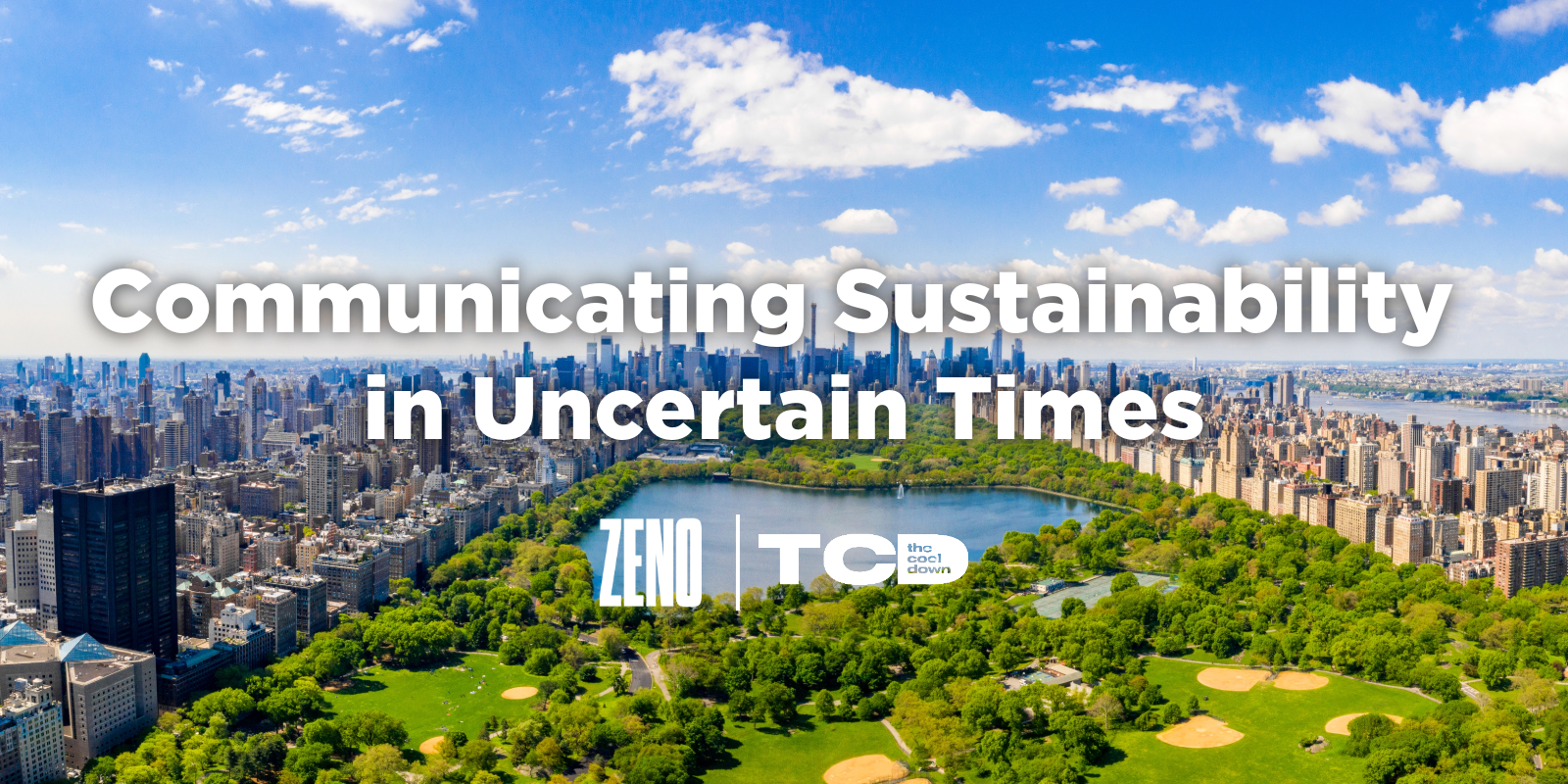Silence Isn’t an Option: Communicating Sustainability in Uncertain Times
By Alison DaSilva, Global Managing Director, Purpose + Impact, Zeno Group
10/02/25

In today’s polarized society, even the most well-intentioned leaders are feeling a bit paralyzed on if or how to share their sustainability efforts. That tension was front and center at this year’s Climate Week, one of the year’s most influential sustainability events. Zeno co-hosted a panel with Anna Robertson, co-founder of The Cool Down, joined by leaders from PetSmart, L’Oréal, and our client, the Aruba Tourism Authority. Together, we explored a pressing question: how can companies communicate sustainability with confidence and credibility in a world where staying silent – or speaking out – can both carry potential risk?
The landscape is complicated. Businesses understand the urgency of addressing climate change and are continuing to advance progress. But at the same time, many are unsure how to communicate their efforts amidst fear of backlash, shareholder scrutiny or even legal implications. Meanwhile, global regulations, NGOs and employees are calling for more transparency and action. It can feel like a “damned if you do, damned if you don’t” situation.
But the stakes are rising. Consider this: 63% of consumers rank sustainability among one of the top purchasing drivers and 70% of Gen Z and Millennial employees factor it into career decisions. As expectations intensify, silence is not an option.
Our panel discussion surfaced several powerful takeaways and principles every sustainability and communications leader can apply:
Show the business case. No one can find fault with operations and strategies that drive business performance, resilience and efficiency. Connect sustainability efforts to business outcomes.
- Lead with value, not virtue. Stakeholders care about impact, but they act when they see a benefit. Think healthier pets because of cleaner ingredients, safer homes with non-toxic products or lower costs from energy-efficient choices. Sustainability should reinforce the value to your stakeholders, not sit alongside it. Make it tangible, relatable and rewarding.
Take an audience-centric approach. One campaign or message won’t meet the needs of every group. Conduct stakeholder mapping to prioritize audiences and understand what they care about, what they want to know, where they get that information and whose voices they trust. Then, craft tailored communications strategies to reach them effectively and meaningfully.
- Semantics matter. Take a data-driven approach to understand the values of your stakeholders and pressure-test language with social listening, sentiment analysis and primary research. Words matter more than ever.
- Keep it simple. Progress sticks when it’s embedded in everyday choices. Think refillable products, recycling programs, lighter packaging. Remove jargon to make sustainable action the default, not the exception.
- Prioritize progress over perfection. Silence erodes trust. Share pilots, lessons learned, trade-offs and next steps. Authenticity and humility resonate much more than sweeping, long-term promises.
Build partnerships that multiply impact and courage. From competitors to NGOs to retailers, unlikely alliances bring scale, credibility and shared risk. Collaboration accelerates what no single organization can do alone.
- Be prepared. Align public affairs, legal, issues/crisis and employee comms early. Get different perspectives, anticipate hard questions and be prepared for backlash.
The session was honest and unfiltered but what stood out the most: there is a hunger for more corporate courage, a unanimous commitment to continue to do the hard work to drive positive impact and hope that this is just a moment in time. The stakes are too high for anything else.
